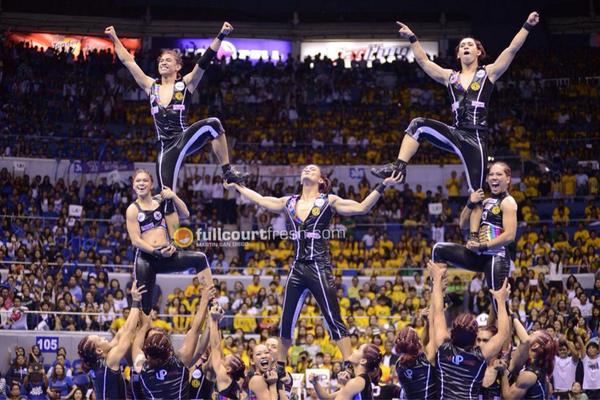I don’t understand the Filipino sense of national pride. The Filipino sense of national pride is hard to distinguish from geographical bias, or outright racism. Filipino pride, to me, is similar to being proud of being born in a territory one did not choose to be born in. In other words, it’s like being proud of an accident.
Filipino pride, as it is commonly expressed, is like watching a male human being with a complete set of fingers being proud of being male, human, and having a complete set of fingers. Personally, I have these qualities too, but I don’t think I should take pride in any of these qualities because I was born with them. I am grateful about these qualities, but there was no effort on my part done to result in having these qualities. In other words, I didn’t work to be human, or male, or to have a complete set of fingers. I was simply born that way.
What I’m saying is, as Filipinos, we should not be proud, by default, for being Filipino. What I believe people should take pride in is having qualities that come as a consequence of effort. Being disciplined,for example, is an attribute that a person should take pride in because discipline is a product of self-control; a consequence of effort. Being kind, I think, is another quality that one can be proud of. Any person who decides to be kind is worthy of praise in my book.
If there’s anything Filipinos should be proud of, it should be something that is achieved through a collective effort. For example, I do not think Filipinos should take pride in Pacquiao becoming champion, because most Filipinos didn’t really help him train. They contributed very little to Pacquiao’s achievement.
However, Filipinos could take pride in the fact that the Philippines ranks among the most gay-friendly in the world. On the survey called, “The Global Divide on Homosexuality,” 73% of adult Filipinos believe that “homosexuality should be accepted by society.”
This is something Filipinos can take pride in, because being considered gay-friendly, as a nation, takes a collective effort, a collective decision to be tolerant.
Just recently, the University of the Philippines expressed a similar, LGBT-friendly message as part of their performance in the recent 2014 UAAP Cheerdance Competition. Since the theme of the performance was gender equality (#pantaypantay), the UP Pep Squad had their female pep squad members lift their male counterparts. As they were performing, the same group initiated the passing of a rainbow flag, a LGBT symbol, to further highlight their advocacy for equality.
As a long-time student of UP (8 years and counting, for various reasons [don’t judge me]) I felt very happy that the UP Pep Squad members did that. I was happy because they promoted an advocacy that I was also promoting.
I felt a sense of kinship with them; like we were comrades and colleagues, fighting for a common good. I felt a sense of pride; I wanted to think that maybe I contributed somehow to the UP community that fostered this environment of tolerance that encouraged the UP Pep Squad to highlight gender equality in their performance. But the pride of the Pep Squad does not and should not extend to me, by default, just because I go to the same school as they do.
I didn’t help them train. I didn’t risk my life being thrown10 feet into the air. I wasn’t part of the group that made a collective decision to take advantage of a national platform to bring consciousness to an advocacy that they collectively supported. They deserve to be proud of what they did.
I don’t.
I didn’t take the risks that they did. I didn’t voice out my support for the LGBT community as loud as they have. In a simple cheer dance performance, the UP Pep Squad was able to force a nation confront the issue of gender equality. That’s quite an achievement, I think. If anything, I should be humbled by that effort.
All I can say is that I’m grateful and happy that I’m part of the academic community whose image these people represented in the best way I can imagine. Congratulations to the UP Pep Squad!
Image Source: http://www.gmanetwork.com/news/story/379148/sports/campussports/binuhat-yung-lalaki-eh-up-pep-squad-s-pantaypantay-routine-a-hit-online



Filipino Pride is just a reaction to the discrimination that is usually thrown against us. It’s being proud in spite of people from other countries telling us we have nothing to be proud of.
Think of it like gay pride.
I agree with this wholeheartedly. I can’t believe so many Filipinos try to claim others’ achievements as their own, which is basically what the Filipino concept of national pride is.
If anybody is anybody and they just happen to be Filipino, the media jumps all over it and suddenly aggrandizes the fact that “Hey, a Filipino did this!”, as if the same thing couldn’t be achieved by any other person of any other race.
I’ve always thought that this shows that the collective Filipino mind has a sort of national inferiority complex, wherein people absolutely *must* boast of every little thing Filipinos can do, as if the act itself isn’t enough to justify the fact that yes, Filipinos can and regularly do perform amazing things that any other person from any other race can do. Except that, apparently, Filipinos are the most boastful about it.
Being proud is incredibly different from being insecure, vocal and boastful about things that have absolutely nothing to do with you. The thing to remember when dealing with criticism is whether or not the criticisms leveled at you are true. If they are, then change for the better. If not, ignore them and prove them wrong.
If people from other countries tell us we have nothing to be proud of, which is obviously not true, the best way to show them up is simply to do something amazing, and be humble about it. This is the mark of a fine race.